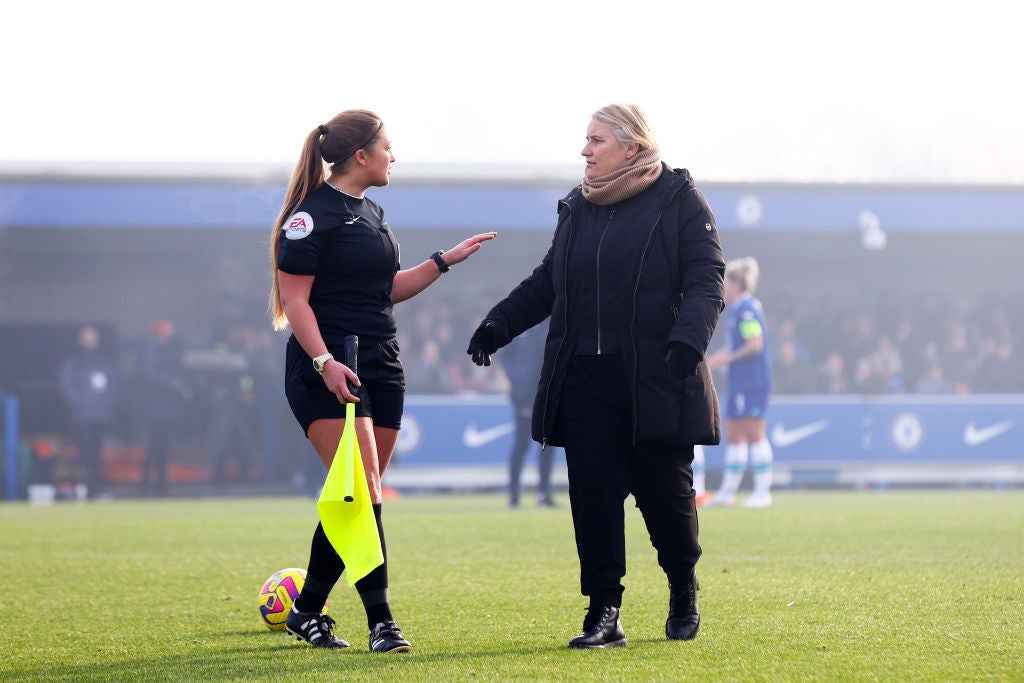Can the WSL really become a £1bn league?
As the women’s game in England enters a new era amid the success of the Lionesses, can the Women’s Super League meet its ambitious targets?

Your support helps us to tell the story
From reproductive rights to climate change to Big Tech, The Independent is on the ground when the story is developing. Whether it's investigating the financials of Elon Musk's pro-Trump PAC or producing our latest documentary, 'The A Word', which shines a light on the American women fighting for reproductive rights, we know how important it is to parse out the facts from the messaging.
At such a critical moment in US history, we need reporters on the ground. Your donation allows us to keep sending journalists to speak to both sides of the story.
The Independent is trusted by Americans across the entire political spectrum. And unlike many other quality news outlets, we choose not to lock Americans out of our reporting and analysis with paywalls. We believe quality journalism should be available to everyone, paid for by those who can afford it.
Your support makes all the difference.A big game, a big goal. No one does it quite like Sam Kerr and the defining moment of last season’s Women’s Super League arguably belonged to her, again. It was at the Emirates and in front of a crowd of over 45,000 when Kerr scored the 90th minute equaliser for Chelsea against rivals Arsenal to keep the champions leading the way towards a fourth-consecutive title. On a crisp January afternoon, this was Kerr delivering on the big-stage with another signature goal, and the WSL producing the drama on its latest landmark occasion. Halfway between the Euros and the World Cup, this was the WSL propelling itself forward purely through its own momentum.
Yet a week later, that momentum had stalled. Or rather, as Chelsea faced Liverpool at a frozen Kingsmeadow, the match was abandoned after a farcical six minutes as players slipped on the ice and struggled to stay on their feet. It was not the only fixture in the women’s top-flight to be called off for that reason, in what the former England and Everton midfielder Izzy Christensen described as a “dark weekend”. Chelsea manager Emma Hayes calmly pointed out that it was the latest example of WSL clubs not being afforded equal opportunities, or access to the country’s biggest stadiums and best pitches that her side played on just a week before.
This is the “critical point” that the WSL faces as the new season kicks off this weekend. The WSL is coming off the back of a World Cup where England reached the final and if last season is anything to go by, the women’s game is set for another record-breaking campaign: last season saw a 173 per cent increase in attendances compared to the previous year, while TV audiences were also on the up with a 34 per cent average increase. This year, the early marker will be set as the WSL attendance record breaks through 50,000 for the first time at Arsenal’s opener against Liverpool on Sunday.
These are exciting times and before the start of the new season, the chair of the WSL, Dawn Airey, made headlines when she outlined the league’s target to be generating £1bn in revenue within the next decade, setting itself the goal of becoming the first women’s football league in the world to do so. The WSL’s target is based on the growth of attendances and broadcast audiences, as well as sponsorship and commercial opportunities. Such a figure sets out the WSL’s ambition to become not just the biggest women’s football league in the game, but the biggest women’s sport league in the world as well.
Key to that ambition, though, is the idea of the WSL being sold as a product. Certainly, the WSL has positioned itself as a leader within the women’s game, boosted by the popularity of football in England and the attraction of the big clubs and star players, both in terms of the Lionesses but also in global superstars like Kerr. The big-game, signature occasions like Arsenal facing Chelsea at the Emirates feed into that image but while much is said about WSL raising the bar year on year, what will fuel growth sustainably is consistency across the league.
“In order for the WSL to be a world-leading league, we need to ensure and be consistent with our standards in the women’s game,” says Dr Beth Clarkson, a senior lecturer in sports management at the University of Portsmouth, and a consultant with the Premier League. A turning point, Clarkson says, is set to be the introduction of the so-called ‘NewCo’, as the FA hands over the running of the WSL and the Championship to its clubs over the course of the next season, a change in governance that to give clubs greater control around decision-making and the WSL’s growth. “For the WSL, equality will be about ensuring high-quality, across pitches, physios, commercial support and the functions of the club,” Clarkson adds.

Key to that, too, is competitive balance. That the WSL begins to enter this new era while Chelsea and Hayes target a fifth consecutive title is significant. Arsenal, Manchester United and Manchester City have all responded in the transfer market, in what has been a record window of spending for clubs, but what does that mean for those who were already struggling to keep up? Aston Villa have ambitions of crashing the big four, but in recent seasons there has been a clear split between a select group of clubs who can win the title and those left behind. This season will be crucial as the bottom half look to prove the gap is closing, not widening.
That also feeds into the idea of the WSL as a product, which in itself will be sold this season as the league enters the final year of its current TV deal with Sky Sports and the BBC. A record-breaking £8m per season deal was signed in 2021 and the women’s game, following two summers of the Lionesses shining at major international tournaments, has clearly come a long way in that time. The growth in TV audiences and its further potential points to the financial terms of that deal rising significantly when it goes to auction later this year.
This opening weekend will showcase why, as club football returns after the World Cup and with attendance records set to be broken across the first round of fixtures, with four played at the club’s main ground: Aston Villa will host Manchester United at Villa Park, Arsenal return to the Emirates to play Liverpool, champions Chelsea face Tottenham at Stamford Bridge and promoted Bristol City meet Leicester at Ashton Gate. Yet for a league that is so often about setting new standards, it is perhaps what will follow behind the scenes and at the clubs in the next six months that will have a greater say about its future.



Join our commenting forum
Join thought-provoking conversations, follow other Independent readers and see their replies
Comments